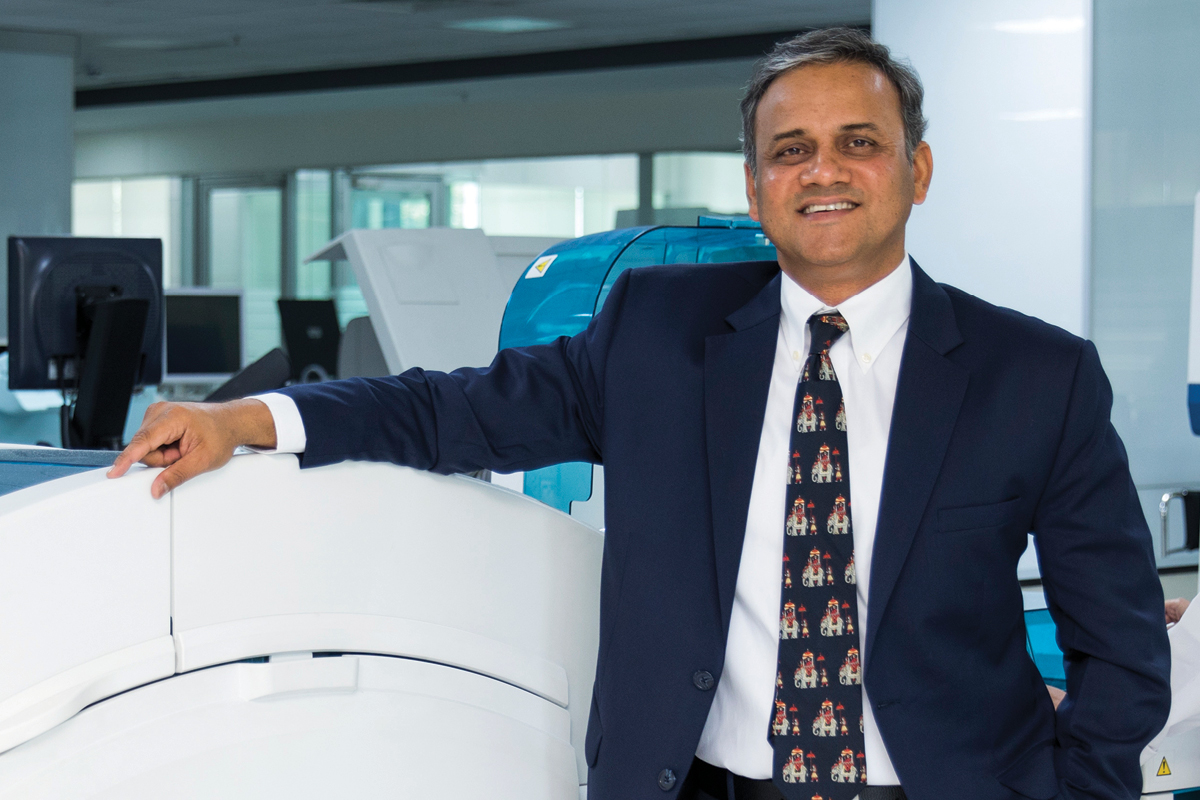During the 11 years he spent working for the Fortis Healthcare group, PathKind Diagnostics Managing Director and CEO Sanjeev Vashishta started to consider ways to increase accessibility to healthcare infrastructure in India’s smaller and more isolated communities. Before starting PathKind, Sanjeev served as CEO of SRL, another pathology and diagnostics lab, and one of the largest companies in India with a presence everywhere in the country.
Familiar with the provision of diagnostic services, Sanjeev wanted to make them available to those living in towns with a low quality and affordability of service. “It is not easy to create labs capable of giving superior quality services, with nimble turnaround time, at affordable prices,” Sanjeev tells The CEO Magazine, but he was evidently ready for the challenge.

With many among India’s population unsure if they have a need for diagnostic services, and only 20% having ever had their blood tested, it became clear to Sanjeev that “somebody should be thinking of going down to the hinterland”. “While we are required to be present in the Tier-1 metro cities, who is going to provide the labs in Tier-3 and Tier-4 towns?” he says. Previous experience had taught him that “it doesn’t make much sense for a pathology sample to travel 100–200 kilometres to get tested”; because of the intense heat in the north of the country, for example. Maintaining the integrity of these samples is just one issue among the many that Sanjeev took aim at by creating PathKind Diagnostics in January 2017.
Before PathKind could commence operations, however, Sanjeev had to find the right partners to help move it forward. He faced a flood of offers from private equity firms, but was disinclined to commit to their short-term investment time lines, preferring instead to find partnership for the long haul. “I wanted somebody who was willing to take a long-term view and create value,” he says, “who believed in providing quality health care or diagnostics to the people in the cities and towns we wanted to go to.” The promoters of pharmaceutical company Mankind Pharma shared a similar vision. “They felt this could be worth their while. Given their level of influence in these cities and their connections with the doctors, I thought it would make my task much easier, because we now had a certain level of engagement with doctors who would be responsive to the need for diagnostics.”
Once the labs were created, the next problem was finding qualified pathologists to staff them. Sanjeev refers to this as a “Herculean task”, one compounded by the additional need to ensure a steady supply of trained technicians. To meet these challenges, PathKind created a training institute, training around 40–45 people for 23–27 days every month. In the institute, qualified individuals are given hands-on training before being posted to a lab. The strategy is being carried out one state at a time, with operations currently focused in Uttar Pradesh, where already 30 labs and 250 collection centres have become operational.

Sanjeev is determined to be ‘pan India’ within five years, aiming for 270 labs and 2,200 collection centres. With a goal of offering “affordability, accessibility and accuracy”, Sanjeev sees the importance of standardisation across operating protocols, technology and systems supporting the labs, as well as their look, feel and layout. Along the way, PathKind has received tremendous support. “Our suppliers share our vision, and that’s why they are able to give us unwavering support.”
“Our suppliers share our vision, and that’s the reason they are able to give us unwavering support.”
A sense of compassion is built into the vision for PathKind’s future. Sanjeev notes the importance of staffing the labs with individuals who are “paying attention to the compassionate side of the business”. “We have to understand the pain of patients who are coming to us,” he points out. He is content to brush aside conventional measures of success for the time being. “Most companies are obsessed with becoming a billion-dollar company, for example. I’m asking very simply, in the first instance, that we only reach out to the masses, to ensure they are given quality diagnostic services at affordable prices.”


